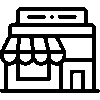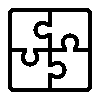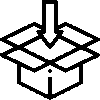- Products
- Platform
- Solutions
- Customers
- Support
- Pricing
 Website & Mobile & E-commerce
Website & Mobile & E-commerce
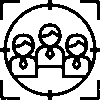 CRM
CRM
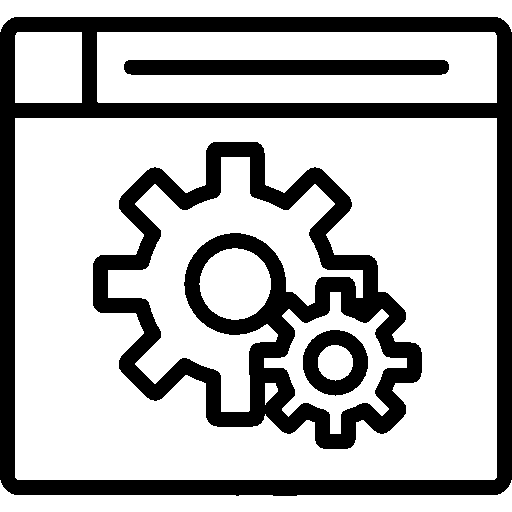 Operation & ERP
Operation & ERP
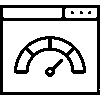 Productivity
Productivity
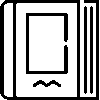 Support
Support
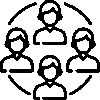 Community
Community
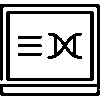 Learn
Learn
Application Support Point

Manage intranet menus, virtual apps and widgets. Update the core libraries required for applications to run smoothly.
- Version History
- Application Features
- User Manual
- FAQ
- Community
Application Management
You can create new application records, edit them by entering the Screen Name and Order information, and optionally activate the Show Left Column option.
You can optimize your apps by updating existing screen recordings, view general information, organize content and rankings, customize app color, and make visual identification easier by selecting icons.
Screens within applications can be displayed in different layouts depending on need.
You can use applications by virtualizing them for different environments.
General Configuration and Settings
Users can customize the color of the app.
You can manage updates manually or automatically from settings.
Display of Screens
Applications are grouped according to their purpose and distributed to the screens. For example, applications such as Message Box and Mail Box can be collected in a screen called "Communication".

Defined screens are listed with their icons and names.
Setting up applications
Applications are divided into six categories: Entranet Framework, Screens, Undocked, Uninstalled, Screen Layout, Installation History.
Entranet Framework

Contains general information about Entranet Framework.
Screens

The number of applications on the screens listed above is displayed. It also shows which applications are on the selected screen, the application name and installed version as a table.
Not placed

Application Name and Installed Version information is included for applications that are installed but not placed on any screen.
Not loaded

For applications that are not installed, the Application Name and Installed Version information are included.
Screen Layout

The All apps column lists all installed apps and provides information about how many of them are on the screen next to their names.
The selected application is dragged to the screen column where it is to be placed. It is saved by pressing the Save button.
Installation History

On the Installation History screen, Date, Type, Component Name, Version, User Name, Status, Error Message information is listed as a table.
virtualization

The virtualization screen includes Searches, Internal Content Viewer, Support Ticket, Events, Workflow Forms, Courses, Mailbox, Message Box, Notes, Projects, Appointments, RSS, Product Management, Visits applications.
Virtualization allows the same application to be created more than once and used with different configuration options.
On the Applications screen, there are Virtual Applications, Screen Name.
The virtual application is added by pressing the Add Virtual Application button.

To add a Virtual Application, enter the Virtual Application Title, Source, Label, and Description information.
Updates
Updates are divided into four categories: Applications, Patches, Core Libraries, and Update History.
Applications
It displays which applications have released updates.

The Applications screen includes Application Name , Installed Version , Latest Version , Latest Version Date information. Click on the application to access the update details.

The details of the application include the Installed Version and Latest Version information.
Basic Libraries

From here, you can install and update some auxiliary software for free. For example, to print a PDF of an invoice, the PDF Library must be installed. There is no need to install a library that is not thought to be used. If needed, the system will warn you and allow you to install the necessary library. These libraries are 3rd party software prepared by different people and institutions and offered for free use. The copyrights belong to the people and institutions that prepared the software.
Update History

This is the screen where information about installed updates is presented.
On the update history screen, Date, Type, Component Name, Version, User Name, Status, Error Message information is listed as a table.
Transactions
On the Operations screen, Update FPV Elements and Update Application Names operations are performed.

Add New Screen Recording
This is the screen where the screen definition is made.

To add a screen, enter the Screen Name, Order, Options information. After all operations are completed, press the Save button to save.
General Information of Applications
This is the screen where General Information is displayed.

On the General Information screen, the Screen Name, Order, and Options information are updated.
Organizing Applications
On the applications screen, the application can be selected as a small icon, the application can be removed from the relevant screen, and a new application can be added to the screen.

Setting the Application Color
The preferred color to be used on the relevant screen is selected and saved.

Icon Selection
The icon is selected and saved to be displayed in the Screens section.

Configuring General Settings
Settings are customized by selecting the settings to be used according to the company's preference from the General Settings menu.

The color of the application is saved by selecting the preferred color.
Applications can be updated individually.
When you log in to Entranet, you can select the option to update applications once a day.
-
How do I add an application record?
Click the "Add New" button in the application. A new application can be added from the "Application Record Adding" screen that opens. You can create your record by specifying the name, description and access permissions of the application.
-
How do I edit an existing screen recording?
To edit an application record, select the relevant application and click the "Edit" button. On the "Edit Application Record" screen that opens, you can edit the general information, applications, color, and icon fields.
-
How do I delete the current screen?
To delete an application record, select the relevant application and click the "Edit" button. You can remove the application from the system by clicking the "Delete" button on the "Application Record Editing" screen that opens.
-
How can I change the color of the app?
You can choose your preferred color by going to the "Set App Color" section in Settings >> General Settings or enter the color code manually.
-
How do I manage updates?
You can manage the updates of each application separately by activating the "Applications can be updated separately" option on the Settings >> General >> Updates screen.
You can also enable the "Update applications when logging in to Entranet" option to have your applications automatically updated daily.
Questions
Ask questions and get answers from other Entranet users.















